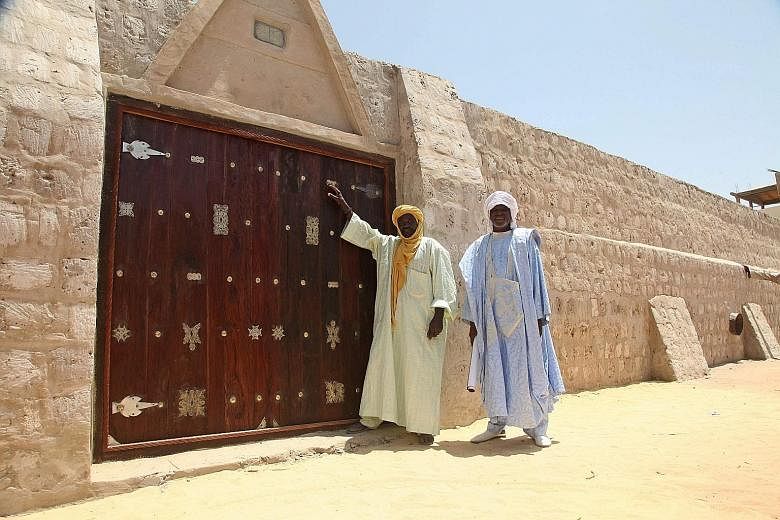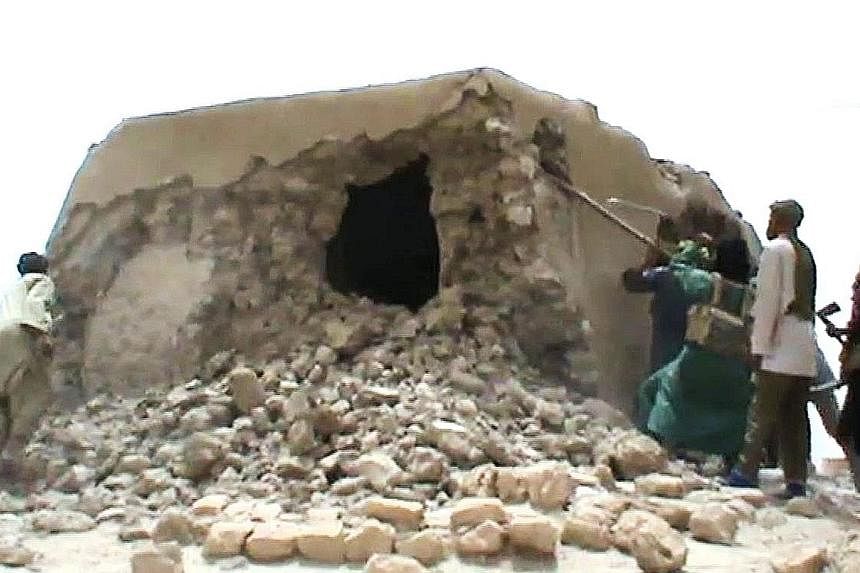THE HAGUE • The International Criminal Court (ICC) has ruled that an Islamist extremist who pleaded guilty last year to destroying shrines and damaging a mosque in the ancient city of Timbuktu, Mali, was liable for damages of €2.7 million (S$4.3 million).
The man, Ahmad Al Faqi Al Mahdi, a member of a terrorist group linked to Al-Qaeda, took part in the smashing of a number of centuries-old mud and stone buildings holding the tombs of holy men and scholars in 2012, when members of his group seized Timbuktu and other parts of northern Mali.
A French-led military force recaptured Timbuktu the following year. Al Mahdi was later arrested in Niger and, at Mali's request, sent to the ICC, which is based in The Hague, Netherlands.
He pleaded guilty, and last year was sentenced to nine years in prison for the destruction of cultural property, which is considered a war crime.
It is the first case in which the ICC has prosecuted a terrorist for cultural destruction and ordered reparations since extremists began attacking sites that they deemed violated their interpretation of Islam.
The court ordered that the victims of the razing of the fabled west African city's historic treasures be paid "individual, collective and symbolic" reparations.
As Al Mahdi, a former teacher, is in prison and penniless, the judges on Thursday asked the court's Trust Fund for Victims to pay the reparations. The fund was created in 2004 by the ICC's state parties to address harms resulting from genocide, crimes of humanity and war crimes.
The judges said the money should cover damage to the buildings, economic losses suffered by local residents and moral harm caused by the loss of the city's cultural heritage.
They added that the attacks carried "a message of terror and helplessness", destroyed "part of humanity's shared memory and collective consciousness", and rendered "humanity unable to transmit its values and knowledge to future generations".
Mr Pieter de Baan, director of the Trust Fund for Victims, said he was pleased with the ruling "because it was clear and helpful in its outline".
He said his team would also have to track down people who might be eligible for individual compensation. That task will not be easy, he said, because many people have fled amid the upheaval in the area.
Diplomats say northern Mali remains unsafe as various factions fight for power, and smugglers and kidnappers are active.
The nine shrines and mosque that were destroyed have already been rebuilt with the assistance of foreign donors.
NYTIMES, AGENCE FRANCE-PRESSE


